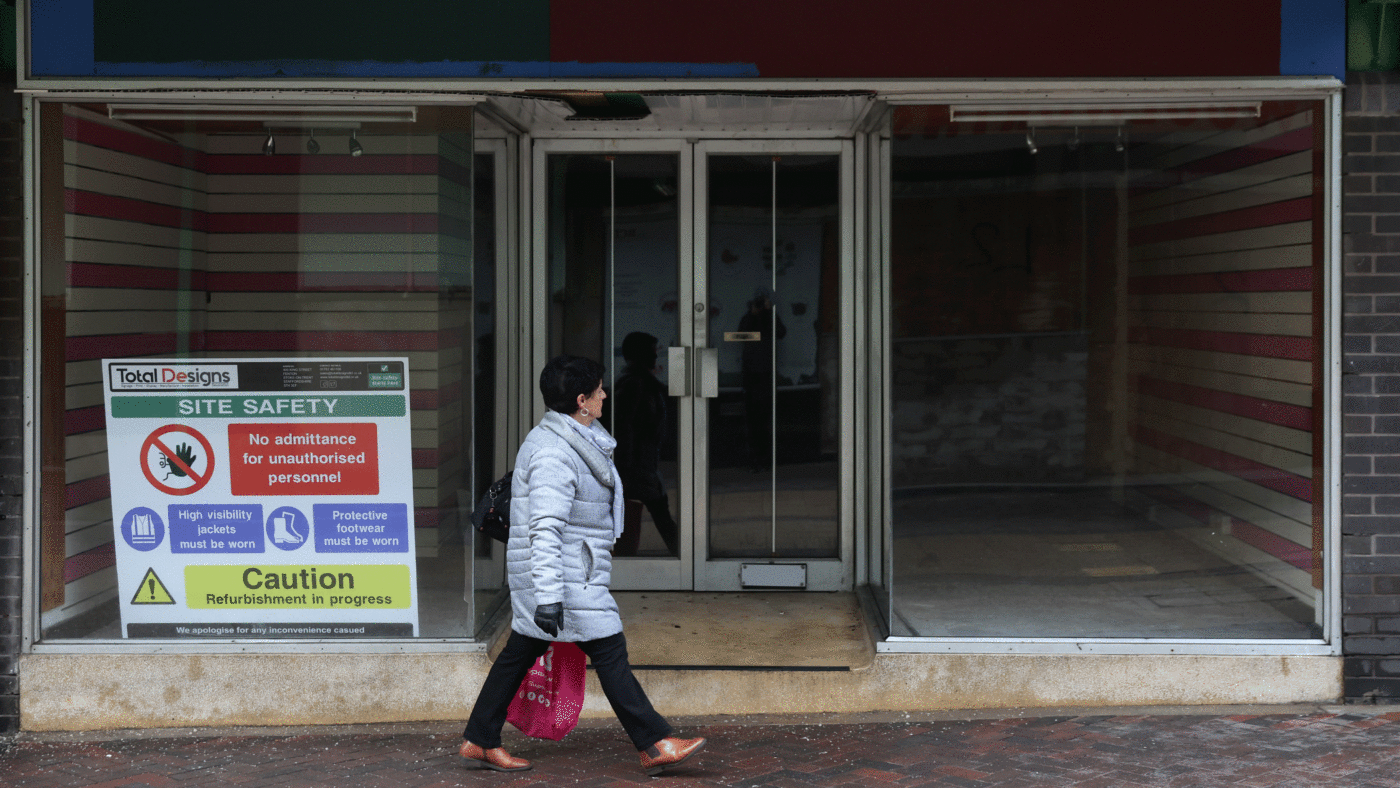Jeremy Driver

Things aren’t feeling great in Britain at the moment. Inflation is running at 10.1%; UK growth in 2023 is forecast to fall 0.3%; and to top it off, Nottingham Forest are odds on to be relegated from the Premier League.
It was in the context of stubbornly high inflation that Bank of England Chief Economist Huw Pill commented yesterday that ‘someone needs to accept that they’re worse off and stop trying to maintain their real spending power by bidding up prices’.
Pill’s comments may have been ill-judged, to put it mildly, but the more uncomfortable truth is that our politicians have been tacitly telling us to accept being poorer for the best part of a generation.
While much of the current squeeze on living standards we’re experiencing – rising inflation, soaring energy bills and climbing interest rates – can be explained by a series of unfortunate events: the war in Ukraine, the pandemic and Brexit, our ability to weather multiple crises has been seriously hampered by a sustained period of poor economic growth in the years since the financial crisis.
Stay informed with our free, fast daily briefing
In fact, Britain is already slipping behind its peers. The typical British family is now £6,800 worse off than a German family, £13,500 worse off than an American family, and, if we continue our current trajectory, is set to be poorer than a Polish family by the early 2030s.
At Britain Remade, the campaign group I work for, we believe a major cause of Britain’s poor growth is our failure to get things built.
Our politics, and in particular our planning system, mean that Britain’s infrastructure, like trains, roads, housing, and energy supply, are just not good enough. This is having a knock-on effect on our productivity and, in turn, our ability to grow the economy. Our failure to build means people and businesses face higher costs, potential agglomeration benefits are lost, and opportunities to create decent jobs in new industries are missed.
Take transport as an example. Just 50% of UK urban areas larger than 500,000 people have a rapid transport system; in Germany, the figure is 85%; in France 94%. In fact, Leeds is the largest city in Western Europe without a rapid mass transit system. One may wonder why growth forecasts for both countries are looking more rosy than Britain’s.
Even the things Britain does manage to start building are beset by delays and cost far more than they should. As I wrote in CapX last month, the Lower Thames Crossing, which was recently delayed for a further 2 years, has cost over £800m in planning already. It’s no coincidence the planning application for the project is the longest planning submission in British history, totalling 63,000 pages across 584 separate documents. That the London Stadium has been booked for the planning inquiry hearings for the project does not bode well for the project.
It doesn’t have to be this way. Britain Remade has recently been digging into how to speed up getting new clean energy infrastructure built. If we’re to end our reliance on imported fossil fuels, then we need to make it much easier to build the new clean alternatives the country needs. Yet at the moment, it can take as long as 13 years to build a new offshore wind farm, once planning and grid connections are taken into account. This is despite the fact that construction takes at most three years.
Similarly, while Britain was the first country to build a commercial nuclear power station, it’s now been 27 years since we last built one. The Government’s announcement of the formation of Great British Nuclear last month is welcome, but without a siting strategy to accompany it, we still have no idea where a new fleet of small modular nuclear reactors will actually be built.
In so many areas, Britain’s politicians talk a good game but lack the will to get things done. Last month Jeremy Hunt said that Britain would focus on creating a ‘pro-growth regulatory regime’ for clean energy rather than matching the mega-subsidies introduced by the USA in it’s new Inflation Reduction Act. It’s the right approach to the problem, but you could forgive some scepticism about the UK’s record on pro-growth rulemaking.
Getting Britain building again is possible, but doing so means our politicians need to avoid taking the Huw Pill and refuse to accept Britain becoming ever poorer.
CapX depends on the generosity of its readers. If you value what we do, please consider making a donation.
No comments:
Post a Comment